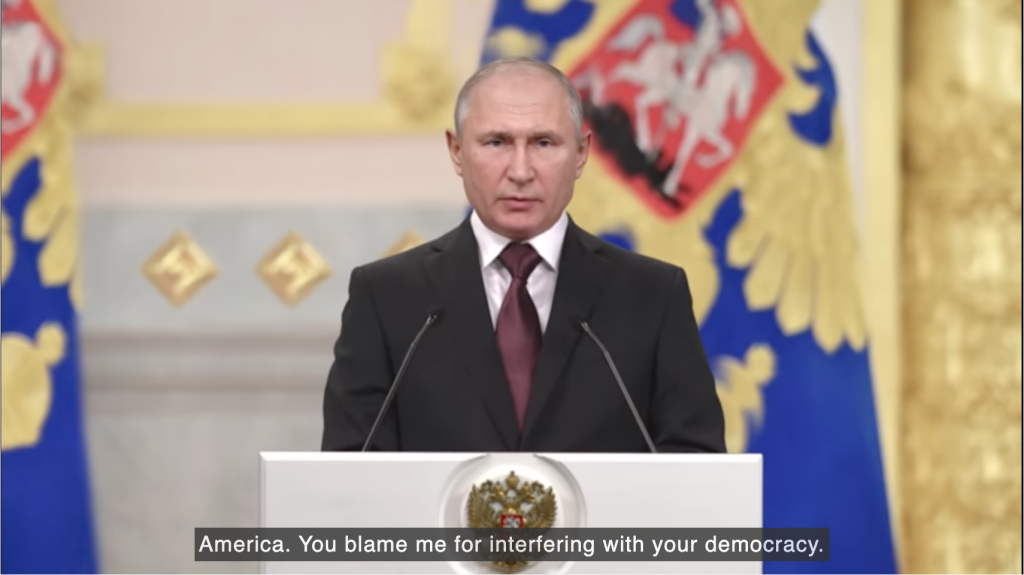CHINA IS CREATING news laws on “deepfakes”. This is a new development in technology which enables people to create entire videos of individuals without their involvement. You basically use artificial intelligence to “paste” someone’s face – usually that of a celebrity – onto the body of someone else.
If it is done carefully enough, the videos are good enough to fool people. In the short video report that goes with this article, you’ll see an example.

Also being reviewed by the Cyberspace Administration of China is artificial voice technology, which is easier to use and potentially even more powerful – a machine learns the parameters of someone’s voice and you can then simply type a script for them to “read” from. Again, it’s normally a famous person. The machine learns what they sound like, and will utter the words you have written, in a voice that sounds like the celebrity’s.
Clearly, there are significant dangers here. Put the two technologies together and it would be easy to create, say, a believable video of a person admitting to having committed a crime – even though you and your video camera have never been near that person.
Even more worryingly, you could make a fake video of a country’s leader saying something provocative, or even making a declaration of war – with terrible potential consequences.

Also on the dark side, the technology is being used to make fake pornography. Pornographers use the software to attach the face of a celebrity (or sometimes a child) onto the face of a porn star.
Making this software illegal is harder than you might think. One of the problems is that the people of China (just like people everywhere) have got hooked on funny filters that they use on smartphone apps – these enhance their faces or change them or swap them with someone else’s.

The key will be to make laws that don’t infringe on the rights of people to have fun with digital media, while still preventing its use for harmful purposes.
Looking at the draft laws, the main thrust appears to be registration. Government lawyers say that if the people offering the service on line are known and registered, there will be less likelihood of fraudulent usage.
Similarly, they want to limit public use to real named people as well. The idea is to avoid the free-for-all in the Western world, where it is easy to find things like “deepfake celebrity pornography” and almost impossible to trace the perpetrators and delete the material.

TAKING RESPONSIBILITY
The legislation being prepared in China will also focus on responsibility.
Kendra Schaefer, who watches business developments in China, notes that the authorities are making sure all associated parties behave themselves. “Anyone providing the tools to produce synthetically-generated or -edited content must take steps to ensure the content is trackable, controllable, and legal,” she said.
The rules will depart from Western practices by asking providers of deepfake services to govern their service users. If someone is using the deepfake service for fraudulent purposes, the platform itself needs to delete the material and report the fraudsters to the authorities.
The interesting thing is that the responsibility stretches to everyone – the developer, the app, and the user.
And it protects potential victims, too. The draft laws say that if you want to make a controllable, digital copy of a famous person, you have to take a mandatory first step: you have to ask them for permission. The shape of your nose, the length of your mouth – these are all legally recognized as information you own.
Of course, these are all big asks, and there’s no way that it can predicted as to whether the rules will be followed. The internet is a jungle. But there’s an argument that the internet in China, for better or for worse, is less of a jungle than it is outside China. So if anyone can control deepfake technology, it may be China’s cyberspace watchdog, the Cyberspace Administration of China.
Will it stifle creativity? That’s always the question. Some western tech people say that the Internet only works if it is a jungle. Get people to behave and the creativity dies.
This may not be true – especially when you consider that the single most visited internet site in the world recently has been TikTok, a program developed and launched in China.
ONE LAST PROBLEM
Lawyers and journalists, meanwhile, highlight another problem. The existence of deepfake technology, even if it isn’t used, is already a difficulty. If a criminal is caught in the act and video exists of his crime, he or she can simply claim it is fake. And the perpetrator needs no technological nowhere to tell that lie.
Image at the top by Max Harlynking on Unsplash

